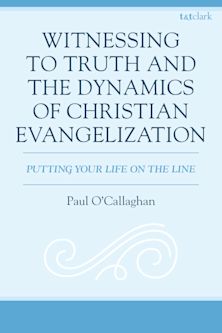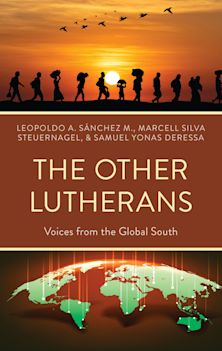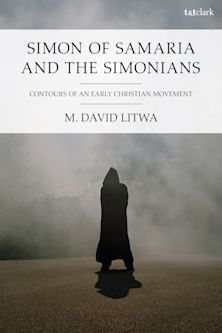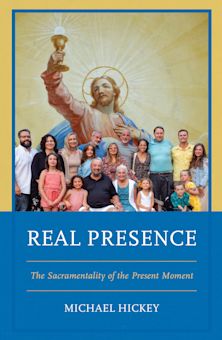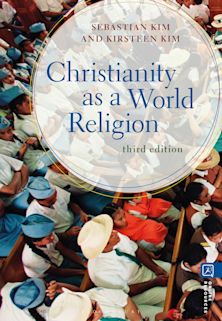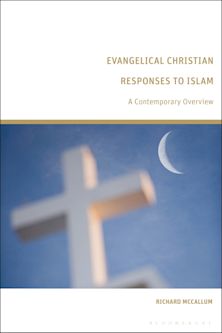Woman as Prophet in the Home and the World
Interdisciplinary Investigations
Woman as Prophet in the Home and the World
Interdisciplinary Investigations
This product is usually dispatched within 1 week
- Delivery and returns info
-
Free US delivery on orders $35 or over
Description
This first-ever interdisciplinary study of woman as prophet shows that, in these troubling times, ordinary women—especially Christian women—need to function as prophets by proclaiming, in word and deed, the indispensability of lovingly seeking the welfare of others. More specifically, social science shows that the person-centered love prophesied by women prophets is able to meet interpersonal challenges within the home and world, while philosophy and theology establish that women are able to excel as prophets due to the virtuous dispositions inculcated by femininity, the choice to be caring, a God-centered spirituality, and a pro-life humanitarian/personalist feminism that welcomes male collaborators. Facilitating the ability of Christian women to prophesy love are Baptismal graces, Thomistic virtues, and a much needed prophetic Marian ecclesiology based on what John Paul II calls the “prophetism of femininity.”
These interdisciplinary findings provide an essential resource for educators and students of humanity, the theology of women, and evangelization. These findings emerge, first, from an investigation into the cognitive and ontological underpinnings of what John Paul II called the “feminine genius.” A second set of findings emerges from exploring the prophetic dimensions of the feminine genius, secular feminism’s need to adopt the insights of Christianity, and the ability of femininity’s prophetism to recast both femininity and feminism as Marian prophecies. A third set of findings arises from analyzing the spirituality of women prophets within the Christian tradition by considering the conditions necessary for prophesying, explicating requisite Thomistic virtues, and delving into the spirituality of Hildegard, Catherine of Siena, Julian of Norwich, and Teresa of Avila. A fourth set of findings arises from innovative studies of polarization, secularization, lust, romantic love, the conditions whereby mothers with careers can flourish, and the ability of nuns to combat racism in a small Midwestern town.
Overall, these interdisciplinary investigations explicate the theology of women and show that women who prophesy love, either in the order of grace or nature, can help heal lives, families, and culture.
Table of Contents
1. St. John Paul II on the Genius of Women, Susan Selner-Wright, Ph.D.
2. On Women and the “Seeing’ of Others, Paul Kucharski, Ph.D.
II. Recasting Feminism and Femininity as Prophecy
3. The Feminine Genius, Personalist Feminism, and the Call for Women to Prophesy According to John Paul II, R. Mary Hayden Lemmons, Ph.D.
4. Woman as Prophet: A Feminism for the 21st Century, Deborah Savage, Ph.D.
5. The New Feminism, Prophetic Bodies, and Freedom, Christine Dalessio, M.A.
6. Prophetic Femininity in the Bible, the Church, and Nature: Reflections on John Paul II’s Prophetism of Femininity and Marian Ecclesiology, R. Mary Hayden Lemmons, Ph.D.
III. Spirituality of the Woman Prophet
7. Worthy of Belief: Reflections on Prophecy, Responsibility and Virtue, Heidi Giebel, Ph.D.
8. St. Hildegard: Prophet and Doctor of the Church, Anne King, Ph.D.
9. Women Mystics of the Catholic Church, Susan J. Stabile, J.D.
IV. Meeting Key Personal, Professional, and Cultural Challenges
10. Women and the Crises of Polarization and Secularization, Mary Eberstadt
11. The Destructiveness of Lust and Its Cure: Reflections on Dante, Aquinas, and Wojtyla, Anthony T. Flood, Ph.D.
12. The Logic of the Gift: Spousal Love and Marriage in the Thought of Karol Wojtyla/St. John Paul II, Richard A. Spinello, Ph.D.
13. How Mothers with Professional Careers Experience the State of Flourishing and Why It Matters for Faith Communities, Peggy Andrews, Ph.D.
14. Catholic Sisters as Servant Leaders for Justice and the Common Good, Meg Wilkes Karraker, Ph.D.
Product details
| Published | Sep 15 2016 |
|---|---|
| Format | Hardback |
| Edition | 1st |
| Extent | 298 |
| ISBN | 9781498542081 |
| Imprint | Lexington Books |
| Dimensions | 9 x 6 inches |
| Publisher | Bloomsbury Publishing |













